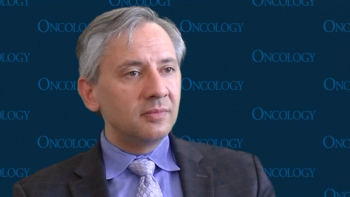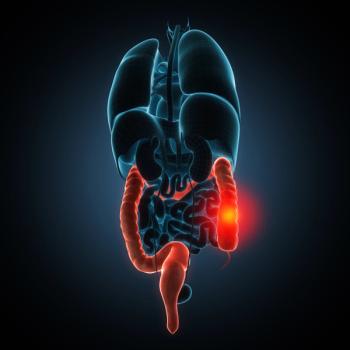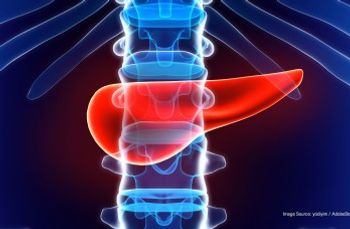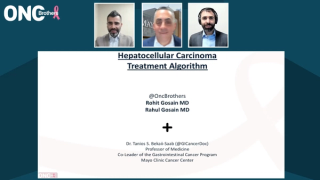
Gastrointestinal Cancer
Latest News
Latest Videos

CME Content
More News

Results from the phase 3 CheckMate 9DW trial of nivolumab/ipilimumab vs lenvatinib or sorafenib led to the approval for patients with unresectable or metastatic HCC.

Future work may focus on optimizing symptom management associated with percutaneous transesophageal gastrostomy placement in malignant bowel obstructions.

Postoperative length of stay ranged from 4 to 9 days for patients who underwent percutaneous transesophageal gastrostomy for malignant bowel obstructions.

A phase 2 study found that treatment with tumor-infiltrating lymphocytes elicited a partial response rate of 15.1% in patients with gastrointestinal cancers.

The FDA approved nivolumab with ipilimumab in adult and pediatric patients with CRC based on data from the phase 3 CHECKMATE-8HW trial.

A lack of guidelines, a loss of follow-up, and out-of-state procedures are all potential reasons for 26% of patients undergoing appendectomy.

Treatment with KRAS inhibitors may help mitigate a common driver of genetic alteration across a majority of pancreatic cancers.

Various methods of communication ensure that members from radiation oncology, pathology, and other departments are on the same page regarding treatment.

Postoperative complications and mortality after standard or postponed surgery for esophageal cancer after active surveillance were similar in both groups.

The staged approach to colectomy offers survival benefits, and it may help avoid unnecessary procedures that only require appendectomy.

Updated results from the BREAKWATER study seemed to be most impactful to the CRC space, according to Michael J. Pishvaian, MD, PhD.

“We did not find any benefit for any of the subgroups in our paper and our study,” Muhammad Talha Waheed, MD, stated.

The prespecified number of events required to undergo analyses of the secondary end points, including PFS, OS, and DOR, have not been met.

Adding HIPEC to CRS did not show any added benefit but has shown increased toxicities in patients with colorectal peritoneal metastasis.

Providing easier access to ancillary services for patients with PDAC who live farther away from the treatment center may help them complete the treatment regimen.

Future research will aim to assess the efficacy of PIPAC-MMC plus systemic therapy vs systemic therapy alone in patients with peritoneal tumors.

Although small incision surgery may serve as a conduit to deliver PIPAC-MMC, it may confer benefits in the staging and treatment of peritoneal tumors.

Muhammad Talwa Waheed, MD, found that resection after appendectomy should be prioritized in the treatment of patients with appendiceal cancer.

Patients with peritoneal metastases were historically associated with limited survival and low consideration for clinical trials.

Laparoscopic, histologic, and biomarker responses occurred at all dose levels of mitomycin treatment in patients with peritoneal metastases.

A phase 2 trial presented at SSO met its primary end point by achieving negative margins in 79% of patients with node-negative rectal cancer.

Sirexatamab plus bevacizumab/chemotherapy significantly improved overall response rate in patients with high DKK1 levels in the phase 2 DeFianCe study.

“[There] is a need to make sure that everybody is coming in and bringing their expertise together,” Valerie Lee, MD, said.

Valerie Lee, MD, said that deciding where to implement immunotherapy into cancer treatment often depends on the type of disease.

The blood test showed consistent, strong results in high-risk subgroups such as those with familial history, pancreatic cysts, or diabetes.











































